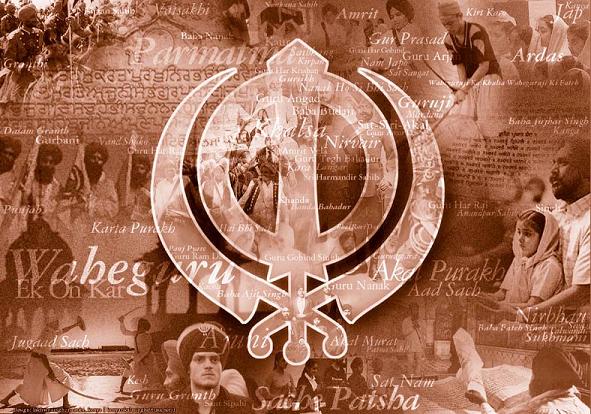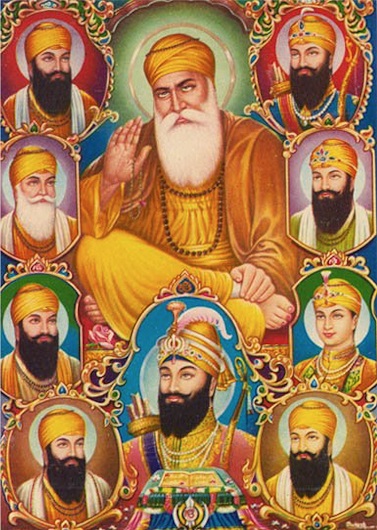Shaheeds Subeg Singh, Shahbaj Singh
Khalsa willingly make sacrifice.
People may have peace all their life.
Bhai Subeg Singh was a person of high character, and a great scholar of the Persian language. He lived near Lahore and worked as a contractor. For some time he accepted the job of the Kotwal, the sheriff of Lahore. Because of his good administrative skills, not only the people, but Zakaria Khan, the governor of Lahore, also respected him very much. Khalsa Panth, as well, held Bhai Subeg Singh in great esteem because he lived like a true Sikh and always helped the Khalsa.
Having failed to subdue the Khalsa through violence and terrorism, Zakaria decided to befriend them. He thought of living in peace with Sikhs by giving up all oppression against them. With that purpose in mind, he offered a deal to the Khalsa which said:
- The government will allot a Jagir to the Khalsa and honor their leader with the title of "Nawab" and present to him a valuable formal robe worn by the kings;
- In response to this gesture of goodwill, the Khalsa will cooperate with the government and not oppose or defy their rule.
Bhai Subeg Singh was requested by the Nawab (governor) of Lahore to use his good offices with the Sikhs and settle the deal. When the offer was presented before the Khalsa, staying in the forests, they declined it. On the request of Bhai Subeg Singh not to waste that chance for peaceful life in villages, the Khalsa accepted it. S. Kapoor Singh was asked by the Khalsa to accept the robe and the title. He has since been known as Nawab Kapoor Singh.
Shahbaj Singh, son of Bhai Subeg Singh, was 18 years old and studying Persian under the guidance of a Kazi, i.e., a Muslim theologian, a judge. The Kazi was very much impressed by the intellectual level, unique physical beauty and very good behavior of the Sikh youth. He wanted a person like him to be a Muslim rather than a kafir (non-believer) as the non-Muslims were called then. The Kazi started preaching Islam to Subeg Singh and assured him many privileges if he became a Muslim. However, the Sikh youth remained firmly stuck to his beliefs. He had studied that Sikhism teaches love and respect for every human being. He argued that there was no reason for him to become a Muslim and to restrict his thought to one community alone.
Having failed to motivate the boy to adopt Islam, the Kazi threatened him with severe tortures if he continued to express his firm dedication to Sikhism. The Kazi soon lost his patience and decided to forcibly convert both the father and the son to his faith.


